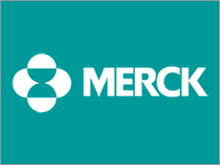|
Merck earnings fall but top forecasts Drugmaker's operating income rises despite increased reserve for Vioxx-related lawsuit; guidance raised. NEW YORK (CNNMoney.com) -- Merck & Co. reported reduced earnings, but still managed to edge past Wall Street expectations, even though Vioxx-related lawsuits against the company continue to mount. The drugmaker earned 51 cents a share in the third quarter, excluding a charge for plant closings and staff cuts. That's down from the 65 cents a share of net income a year earlier, but above the 50 cent a share forecast of analysts surveyed by First Call.
Looking forward, the company raised its full-year 2006 earnings guidance slightly, to a range of $2.48 to $2.52 earnings per share. Merck's (up $0.73 to $45.22, Charts) stock price climbed 2 percent on the news. The company beat forecasts despite reserving an additional $598 million in the third quarter solely for future legal defense costs of its painkiller Vioxx, which was pulled in 2004 after it was linked to heart attacks in patients. Merck also reported that its tally of Vioxx-related lawsuits has reached 23,800 cases. Including extraordinary charges, Merck reported net income of $940.6 million, or 43 cents a share, in the period, on revenue of $5.4 billion. The revenue, which was flat from a year earlier, beat forecasts of an 8 percent drop in sales. Merck's sales were driven by the cholesterol-cutting drug Zetia, which increased more than 40 percent in the third quarter to $502 million, and the cholesterol drug combo Vytorin, which also exceeded $500 million. But Merck also endured its first full quarter without a patent-protected Zocor, which outran its patent in June. Sales for the company's cholesterol cutting drug Zocor plunged 65 percent to $371 million in the third quarter. Merck is staking its future on newly approved and newly launched potential blockbusters like Gardasil, the cervical cancer vaccine, and the diabetes drug Januvia. Sales for Gardasil totaled $70 million during its first full quarter on the market, and the vaccine has been approved for use in 30 countries. Some analysts believe that annual sales for Gardasil - one of five Merck vaccines approved in 2006 - could eventually reach $4 billion, if state governments mandate the vaccine's use in inoculating school children. "Being able to prevent cervical cancer is something that all of us at Merck take pride in," said Merck chief executive Richard Clark, in a teleconference with analysts. Merck received FDA approval for Januvia on Oct .17 - too recently for the drug's sales to show up the balance sheet for the third quarter. Merck - and analysts - expect Januvia to drive a significant contributor to sales in the near future. The drug helps patients with type 2 diabetes control their blood-sugar levels, and like many other drugs in the lucrative industry of diabetes treatment, it's expected to be a blockbuster. Barbara Ryan, analyst for Deutsche Bank North America, projects annual Januvia sales to peak at $2 billion by 2010. Clark, the CEO, said the first shipments of Januvia went out Thursday, and the first customer orders are to be filled Friday. Like the other members of Big Pharma, Merck is under pressure to secure new blockbuster drugs to grow future sales. Drug companies have traditionally developed their own drugs in-house. But in recent years many drugmakers, including Merck, have secured new products by buying smaller biotechs with rich pipelines, or by licensing the individual drugs they want. Judy Lewent, executive vice president and chief financial officer, said Merck conducted 24 licensing transactions in the third quarter. She said Merck is "actively seeking targeted acquisitions" and is in discussions with 40 companies for the possible licensing of new and experimental drugs. Ryan, the analyst for Deutsche Bank North America, raised Merck's earnings per share expectations to $2.50 for 2006 and $2.70 for 2007, and she raised the 12-month price target to $51, noting that Merck had raised its guidance three times this year. Ryan, in a published note, wrote that risks to Merck shares going forward include the possibility that the company could fail to deliver on its earnings expectations or suffer "disappointing launches" of new drugs. Also, Merck still faces the possibility of "staggering Vioxx liability," said Ryan. Other major drug companies, such as Pfizer (Charts), Lilly (Charts) and Wyeth (Charts) all posted improved earnings that beat analysts' expectations Thursday, though Pfizer isn't expecting annual profit growth until 2009 and is ramping up its already ambitious cost-cutting efforts. Schering-Plough (Charts) said Friday its third-quarter profit rose nearly sevenfold to top Wall Street estimates, sending up the stock price more than 1 percent. The analysts quoted in this story do not own shares of company stocks mentioned here. -- CNNMoney.com senior writer Chris Isidore contributed to this report. |
|

